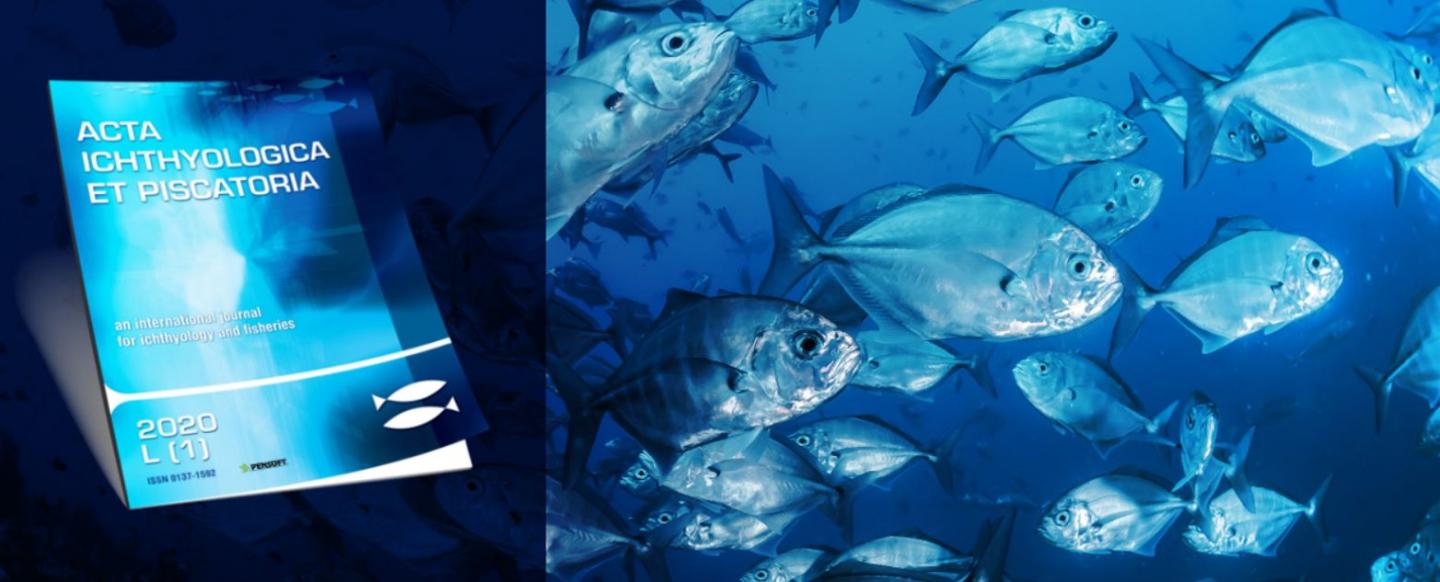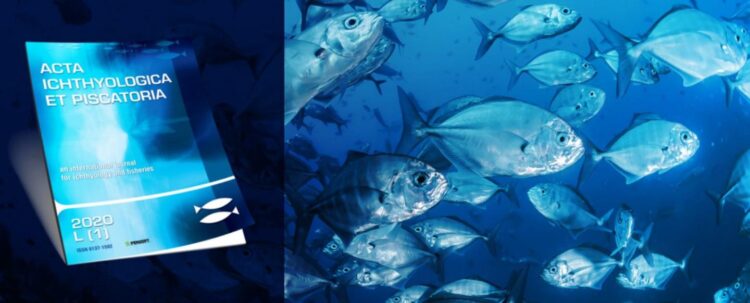
Credit: Acta Ichthyologica et Piscatoria and Pensoft
The scholarly publisher and technology provider Pensoft and its self-developed publishing platform ARPHA welcome three journals to their distinguished and growing portfolio of biodiversity-themed journals. The international, peer-reviewed and open-access journals Acta Ichthyologica et Piscatoria, Caucasiana and Zitteliana are now fully operable and open for submissions through their new websites and technologically advanced user interfaces.
By moving to ARPHA, the three scholarly outlets will not only revamp their websites and technological backbone, but will also take advantage from ARPHA’s signature fast-track, end-to-end publishing system, which is to benefit all journal users: authors, reviewers and editors alike. In addition, the journals will use all unique services offered by ARPHA, such as data publishing, linked data tables, semantic markup and enhancements, automated export of sub-article elements and data to aggregators, web-service integrations with over 40 world-class indexing and archiving databases, sub-article-level usage metrics, and more. Published articles are to be available in PDF, machine-readable JATS XML formats and semantically enriched HTML, so that they guarantee better reader experience to ensure they are easy to discover, access, cite and reuse.
Acta Ichthyologica et Piscatoria
Launched in 1970, Acta Ichthyologica et Piscatoria (AIeP) publishes research about all aspects of ichthyology and fisheries, concerning true fishes (fin-fishes), including taxonomy, biology, morphology, anatomy, physiology, pathology, parasitology, reproduction and zoogeography. To be accepted, manuscripts need to be based on original experimental data or experimental methods, or new analyses of already existing data. The journal stands against the publication of “isolated” research, linked neither to the “past” nor the “future” of science. Likewise, “salami science” is also discouraged. AIeP is indexed by all major indexers, including Web of Science and Scopus. The journal’s first Impact Factor was released in 2010, and currently stands at 0.629 (2019).
Caucasiana
As a successor of the Proceedings of the Institute of Zoology of the Georgian Academy of Science, the Caucasiana is to give new life to the historical, print-only zoological by becoming a full-fledged, exclusively digital scholarly journal, focused on the still poorly known biodiversity in the Caucasus region and its adjacent areas. Caucasiana‘s aim is to accumulate primary biodiversity data urgently needed to understand the big picture of the biodiversity in the area: from individuals to ecosystems. To support the mission of uncovering the secrets of the Caucasus, the journal operates a no-APCs policy.
While the journal will be considering all biodiversity-related studies, based on their merits and quality of research, Caucasiana places special attention to taxonomic inventories and systematics. Thereby, in addition to traditional research outputs, the journal also publishes data papers, annotated checklists, monographs and conference proceedings, making use of the suite of biodiversity data publishing innovations, tools and know-how available from Pensoft.
Zitelliana
In 2021, Zitelliana is celebrating its 50th anniversary in a brand new gear in an excellent example of tradition working perfectly together with innovation and modernity. Since its launch in 1961, Zitelliana, a scholarly journal devoted to all fields of paleontology and geobiology, and owned by the Bavarian State Collection of Palaeontology and Geology (SNSB), has changed several names (i.e. Mitteilungen der Bayerischen Staatssammlung für Paläontologie und historische Geologie, Zitteliana A (Abhandlungen) and Zitteliana B (Mitteilungen)) and has extended its scope to cover research from outside Bavaria and adjacent regions or materials deposited in the SNSB’s collections.
Today, Zitteliana welcomes both modern and traditional research outputs, including palaeobiology, geobiology, palaeogenomics, biodiversity, stratigraphy, sedimentology, regional geology, systematics, phylogeny, and cross-disciplinary studies. Thanks to the support of the SNSB, authors in Zitteliana publish free of charge.
“At Pensoft, we take pride in our experience and achievements in the field of biodiversity research publishing and dissemination, so we’re particularly pleased to welcome these three wonderful journals and share our know-how with them at all levels: readership, editorship, publication and dissemination,” comments Prof. Lyubomir Penev, CEO and founder of Pensoft and ARPHA.
###
Follow @ARPHAPlatform on Twitter.
Additional information:
About Pensoft:
Pensoft is an independent academic publishing company, well-known worldwide for its innovations in the field of semantic publishing, as well as for its cutting-edge publishing tools and workflows. In 2013, Pensoft launched the first ever end to end XML-based authoring, reviewing and publishing workflow, as demonstrated by the Pensoft Writing Tool (PWT) and the Biodiversity Data Journal (BDJ), now upgraded to the ARPHA Publishing Platform. Flagship titles include: Research Ideas and Outcomes (RIO), One Ecosystem, ZooKeys, Biodiversity Data Journal, PhytoKeys, MycoKeys and many more.
About ARPHA:
ARPHA is the first end-to-end, narrative- and data-integrated publishing solution that supports the full life cycle of a manuscript, from authoring to reviewing, publishing and dissemination. ARPHA provides accomplished and streamlined production workflows that can be customized according to the journal’s needs. The platform enables a variety of publishing models through a number of options for branding, production and revenue models to choose from.
Media Contact
Prof. Lyubomir Penev, CEO and founder, Pensoft and ARPHA
[email protected]





